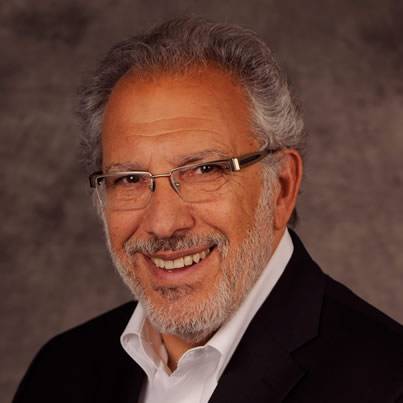Guest Post: Employability in a Post-COVID-19 World
April 27, 2020
By Ralph Wolff, The Quality Assurance Commons Author CPE_CommunicationsPublished on April 27, 2020
This article is part of the Council's COVID-19 on Campus series.

As higher education grapples with the enormous administrative and teaching challenges brought about by the COVID-19 pandemic, we also need to respond to the impact on the future employability of our students, especially those graduating this term.
Today's students come to our institutions to prepare for work, to build meaningful careers, and to generate sufficient means to participate in the multiple opportunities our society and economy provide. Can these goals be achieved in the current environment?
In order to gauge the impact of the current situation and project a bit into the immediate future, I canvassed a number of faculty and administrators from community colleges and universities over the past several weeks. While much is uncertain as to what the economy and job market will look like in three to six months, let alone a year, we can identify a number of likely consequences, especially for current graduates and job seekers:
- Apart from grocery stores and online sellers, the job market has crashed and will not revive for some time.
- Competition for available jobs will be greater with applicants needing to distinguish their skill sets beyond academic capacity.
- Internships, often a key to employment, have been stopped this term and may well be eliminated for the fall term.
- Practica, co-ops, and field placements have been stopped and may not be available for some time.
- Interviewing will be virtual and will require a different way of presenting oneself than in person.
- Degrees will be less important than demonstrable skills, including such "soft skills" as adaptability, resilience, teamwork, and the ability to communicate effectively in virtual, as well as physical, environments.
Experience with the 2008 recession suggests that these difficulties will follow today's graduates for some years, resulting in higher rates of underemployment and unemployment, and lower earnings even when employed. Thus, special efforts need to be made right now to prepare students to compete in this new marketplace. This is the responsibility of faculty as well as career service officers -- indeed of the entire institution.
Currently, courses and programs are being reconfigured to be conducted online. In this environment, students need to know that their program will provide them with the skills needed to be competitive, as well as agile and adaptable for a volatile workplace. Here are some steps that need to be taken:
- Soft skills, or what I call Essential Employability Qualities, need to be embedded in all courses. A recent NACE survey found that 93% of employers consider "soft" skills equally as important as "hard" skills. Program and course learning outcomes need to articulate these skills and identify in syllabi how they will be developed throughout the course and program just as academic skills are mapped and scaffolded.
- Communication skills, written and oral, are most frequently cited as lacking by employers and need to be taught in ways that are relevant to workplace scenarios as well as disciplinary. Recent research, for example, found that 73% of employers had difficulty hiring qualified applicants with strong communication skills.
- Career services need to be integrated throughout the course of study, not just at the end of the program, so that students build and then are able to represent relevant skills they have developed and demonstrated.
- If internships cannot be arranged, then simulated examples and work-related case studies need to be developed, and employers brought in to describe real-life issues they need graduates to be able to address effectively.
- Assessment needs to address the demonstration of employability skills as well as academic and technical outcomes.
- Silos between and among departments as well as student and career services need to be broken down so that good practices and employer feedback can be shared and acted upon.
The cost of higher education in these uncertain times will likely lead to a dramatic increase in the demand for short term credentials and especially those that focus on or include the essential employability skills. Many students may be unwilling to return to ‘traditional education' systems and will want access to short term credentials with more immediate economic payoff or programs that can demonstrate effective preparation for employability beyond the first job.
In working with more than 40 programs in all types of institutions across multiple disciplines, we have found that few programs address employability in an integrated fashion, such as described above. The need to do so is greater now than ever. Just as we are witnessing a shift to online education, unthinkable even six months ago, so too we now need to make the development and demonstration of employability skills central to the entire higher education enterprise. We owe it to our students to transform our institutions to integrate academic, technical, and employability skills since their hopes of having meaningful and rewarding careers depend upon it.

Ralph Wolff is co-founder and president of The Quality Assurance Commons.
Reprinted with permission from Real Clear Education.
Last Updated: 7/21/2021
